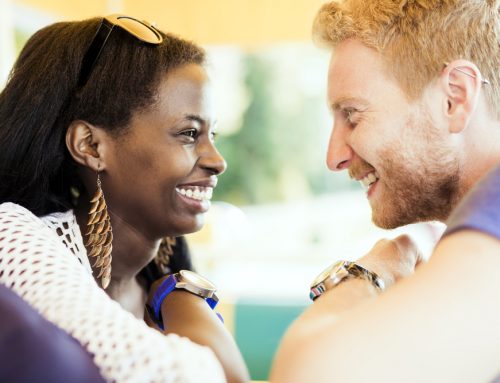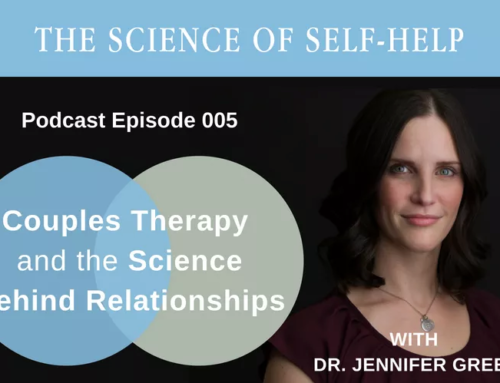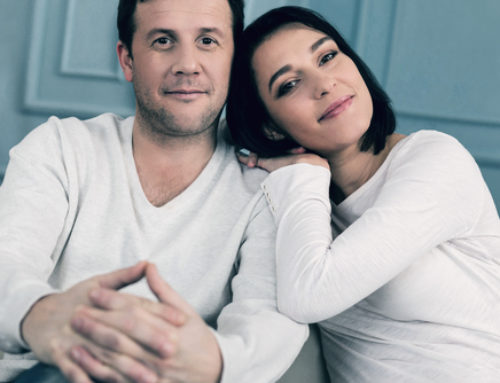Share This Story!
WHY THE GOTTMAN METHOD WORKS
‘A World of Difference’
By John “Jack Crossen, Ph.D. | Master Gottman Therapist
One of my values is to be a lifelong learner, and this philosophy led me to Gottman Method Couples Therapy, a type of psychotherapy that has proved immensely valuable for me as a therapist. Without my knowledge of the Gottman method, I would have been less effective at helping hundreds of couples infuse their homes with more love. The emphasis of modeling gentle understanding of differing views has also been helpful for individual therapy.
DISCOVERING GOTTMAN
In 2002, I began counseling medical students at Oregon Health & Science University. As I helped these students cope with the pressures of medical school, I discovered that married students were especially stressed. Their marriages were being crushed by the unyielding timeline of medical coursework requirements. I invited these students to bring their spouses to counseling sessions, during which I realized I was not equipped to properly help them.
While I had already earned my doctorate degree and owned my own clinical practice for 15 years, I found counseling couples required a new set of skills such as the ability to serve two people who usually had conflicting interests, issues and perspectives. In the simplest terms, each needed to feel more loved, and each needed to give more love.
While I was not sure how to achieve those “more love” objectives, something inside me – perhaps my passion for learning – said a sound couples therapy technique existed and, moreover, that I needed to master it.
My detailed search of many techniques led me to Gottman Method Couples Therapy, and I was hooked. I completed several professional education courses with The Gottman Institute, and I earned certifications as a Gottman Couples Therapist, a Seven Principles Educator, and a Bringing Baby Home Educator. In 2015, The Gottman Institute named me a Master Gottman Trainer – a distinction held by only about 25 people worldwide (as of 2017).
WHAT IS THE GOTTMAN METHOD?
In the 1970s, Dr. John Gottman, a psychologist, headed a research team that systematically observed couples despite long-held beliefs that studying people could not establish reliable personality patterns since no two people were alike. Dr. Gottman’s research found otherwise. The study proved “there was tremendous regularity in a couple over time” * and that identifying regular patterns, such as positive and negative interactions, could lead to explanations of what triggered them.
Other studies he embarked on included studying emotions through bio-psychological measures , how people felt subjectively during conflict discussions, and linkages among marital interaction, parenting, and children’s social development. Throughout the research, Dr. Gottman and his partners applied rigorous scientific methods, including hypothesizing, observing, tabulating data, analyzing results, developing conclusions, and then replicating their findings.
The idea of applying the scientific method to the study of relationships was novel at the time. But that was just the beginning. In 1986 at the University of Washington, Dr. Gottman and his colleagues equipped campus apartments with high-tech monitoring equipment and placed couples in these living spaces, where they were observed and monitored in day-to-day routines.
The approach was groundbreaking and became known as the “Love Lab” project by the media. The findings were astonishing. Scientists were able to pinpoint the “basis of friendship and intimacy and its relation to conflict.”
INSTITUTING LOVE
Dr. Gottman continued to study relationships and how to strengthen them. In 1996, he co-founded The Gottman Institute with his wife, clinical psychologist Dr. Julie Schwartz-Gottman. Using John’s research, they developed coursework for therapists and workshops for couples. At these events, attendees learn key relationship principles based on the research, as well as much of the fascinating research data collected by Dr. Gottman and his researcher partners.
Does the Gottman methodology work? One indicator that affirms the soundness of the Gottman methodology is that Gottman-based couples workshops worldwide have been attended by tens of thousands couples – with different backgrounds, issues, and cultures. An amazing 86% of attendees report the workshop have a positive result on their relationship.
In my own practice, applying the Gottman method in my assessment and treatment plans has made a world of difference. Regularly the feedback about sessions is that couples feel more fully “heard” by their partners, that there is more emotional closeness, that they experience less negative escalation in managing conflict, and that they are more successful in repairing misunderstandings.
I’ve become friends with Drs. John and Julie Gottman, a real career highlight! It is inspiring to be part of their vision for increasing the opportunities for training therapists and for research dissemination. I am also impressed by their commitment to extend scientific investigation to developing compassionate therapeutic protocols for couples healing from affairs and helping couples overcome domestic violence.
A year ago, The Gottman Insititute marked its 20-year anniversary. Having been involved in research throughout my career, I can relate to the difficulties of Dr. Gottman’s early research projects, when funding was short and critics questioned his insistence on applying expensive scientific methods to love. But he had been right.
The theories and conclusions born from the studies have stood the test of time. Couples regularly complete treatment plans and workshops Gottman therapists reporting feeling in a better place than when they entered. A place of feeling more loved and giving more love.
*Unless otherwise noted, statements are found in The Gottman Institute website, “Research,” 2017.
Dr. Crossen specializes in helping couples increase and sustain loving relationships, and rebuilding the emotional bond of couples in distressed relationships. He is only one of about 25 therapists worldwide who are credentialed as a Certified Master Gottman Therapist. He has been practicing in the Portland area for more than three decades, and has taught at universities and various community events.




